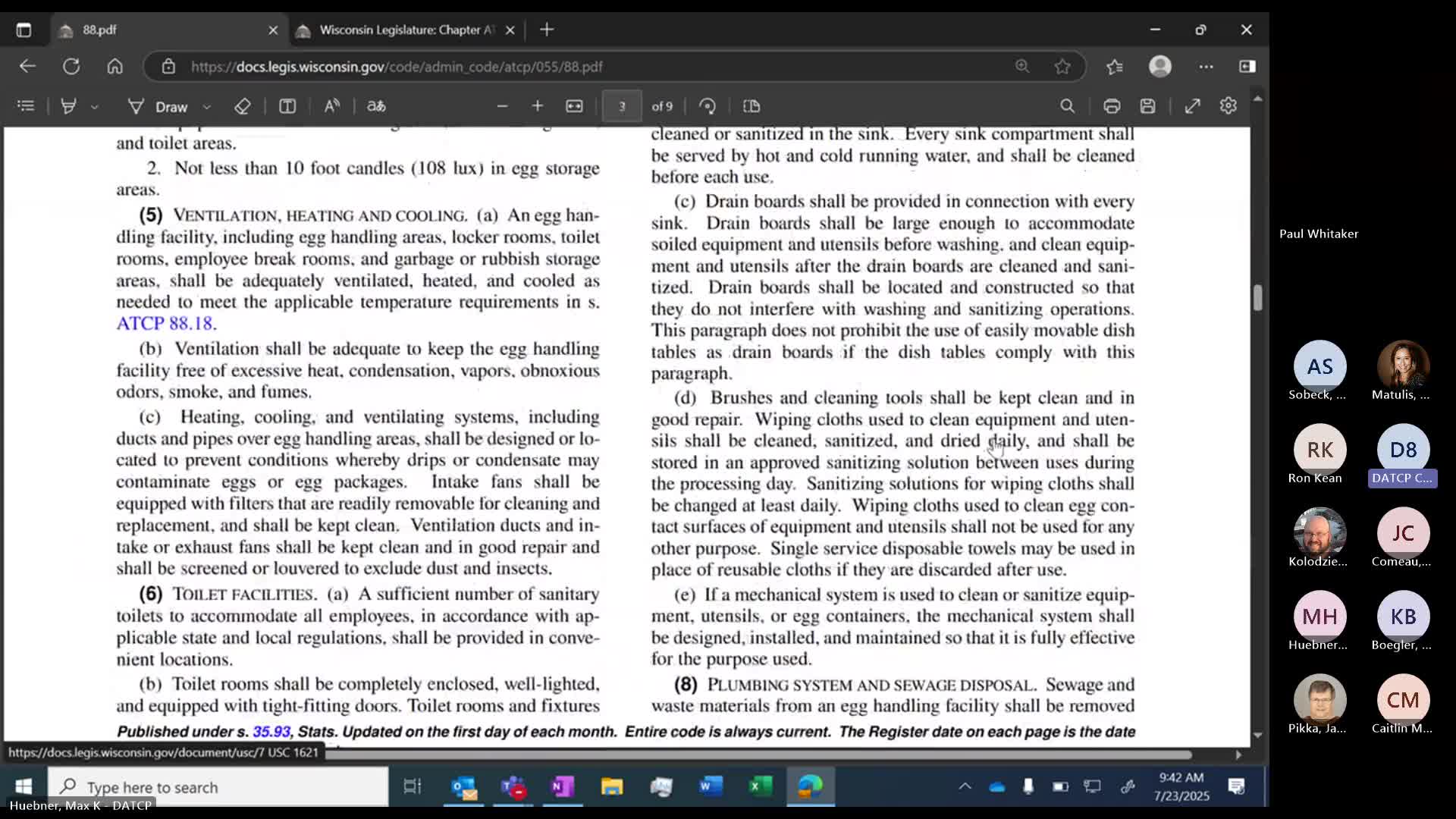USDA Reviews Grading Standards for Chicken Eggs Amid Diverse Egg Types Discussion
July 30, 2025 | Department of Agriculture, Trade and Consumer Protection, Executive Departments, Executive, Wisconsin
Thanks to Scribe from Workplace AI , all articles about Wisconsin are free for you to enjoy throughout 2025!

This article was created by AI using a video recording of the meeting. It summarizes the key points discussed, but for full details and context, please refer to the video of the full meeting. Link to Full Meeting
A significant topic was the grading standards for chicken eggs, which are primarily based on USDA requirements. Participants noted that while the language in the regulations is partly derived from USDA standards, there is room for state-specific adjustments. Stakeholders expressed a desire to clarify the definitions and classifications of various egg types, including quail, turkey, and goose eggs. One participant suggested that these eggs, lacking established weight classifications, should be categorized as ungraded. This proposal aims to eliminate confusion and provide clearer guidelines for producers and consumers alike.
The meeting also addressed the need to update links to USDA resources referenced in the regulations, as changes have occurred in USDA documentation. This update is essential to ensure that the regulations remain relevant and accurate.
Another point of discussion was the minimum tolerance standards for eggs, which dictate the limitations on the sale and distribution of eggs that do not meet specific criteria. Participants acknowledged that some aspects of these standards may be beyond state control, depending on USDA regulations.
The topic of restricted eggs was also covered, with a focus on prohibitions against their sale and the proper disposal methods. Participants did not raise significant concerns regarding this section, indicating general agreement on the existing language.
Lastly, the meeting touched on the practice of eggshell oiling, which some participants felt may be outdated. Comparisons with regulations from other states revealed a lack of emphasis on this practice, prompting questions about its relevance in current egg production.
Overall, the meeting underscored the importance of refining egg-related regulations to better serve producers and consumers while ensuring compliance with federal standards. As the discussions progress, stakeholders will continue to evaluate the implications of these regulations on the egg market in Wisconsin.
Converted from ATCP 88 Scope Statement Meeting – July 23, 2025 meeting on July 30, 2025
Link to Full Meeting
Comments
View full meeting
This article is based on a recent meeting—watch the full video and explore the complete transcript for deeper insights into the discussion.
View full meeting
